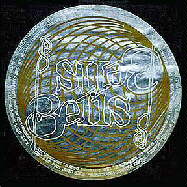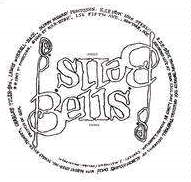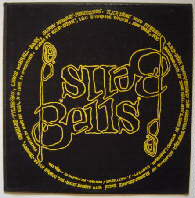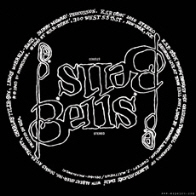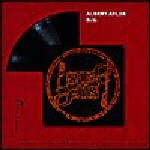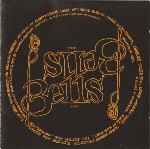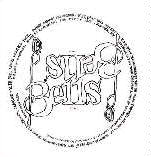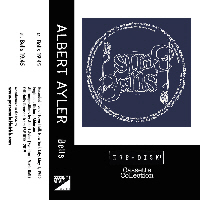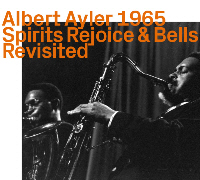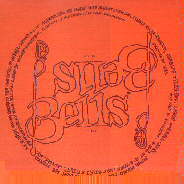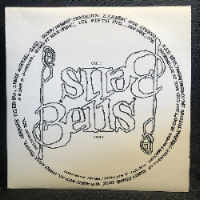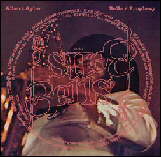|
Music Is The Healing Force Of The Universe The Inconsistency of |
|
|
|
BELLS
Tracks 1. Bells (19:56) (No track breaks, but (according to Jeff Schwartz) the compositions played are "Holy Ghost" and "No Name", going into "Bells". All compositions by Albert Ayler)
Personnel Albert Ayler (tenor saxophone) Donald Ayler (trumpet) Charles Tyler (alto saxophone) Lewis Worrell (bass) Sunny Murray (drums)
Recording Details May 1, 1965 Town Hall, New York
Release Details Released as Bells on ESP (US) 1010, (Japan) BT5004, Base Record (Italy) ESP 1010, Calibre (Netherlands) ESPCD 1010, Abraxas (Italy) ESP 1010 (Minimax CD-single), ESP (US) ESPCD 1010. The original LP was released as one side on coloured vinyl, or as the sleeve has it: “Transparent disk complete on one side”. There are a number of different variations including ‘yellow vinyl, black sleeve with white lettering’ and `transparent vinyl, white sleeve, red lettering`.
From the sleevenotes “To this listener, there seems to be a great deal of wild humor in Ayler’s music. Though often vehement, it is celebration rather than protest; much of it has the sheer “bad boy” joy of making sounds. Dan Morgenstern (From the Down Beat review of the original Town Hall concert, reprinted as the sleevenotes to some versions of the ESP release. Click here to read the full text.)
“The original LP-pressing of Bells was a translucent one-sided disc, with the cover of Bells painted on the grooveless back of the vinyl. After the commotion around the release of Ayler’s Spiritual Unity (ESP 1002) a year earlier, Bells was received rather coldly, with critics joking that the record looked better than it sounded. Even nowadays, Bells is a somewhat overlooked record. Remco Takken, jazz critic for De Volkskrant (from the Calibre release of Bells) * In June, 2021 I received the following email from Sean Wilkie: “I re-checked the timings on the new ezzthetics reissue on Hat Hut. They list Bells as (19.50) on the back cover, although the sound fades out at 19.47. ‘Holy Ghost’ begins the track and finishes at 5.18, the applause comes in immediately, 5.19 – 5.24, interrupted by ‘No Name’ at 5.25, segueing directly to ‘Bells’ at 8.41. The audience hears ‘Bells’ finish at 19.31 and start applauding at 19.32, with a little post-finale flam by the rhythm players to 19.34. Short version: Bells (19.47) a.Holy Ghost (with applause) 5.24 b.Medley 14.22, of: i.No Name 3.16 ii.Bells (with applause) 11.06 At the Black Arts benefit gig on 28/3/65, ‘Holy Ghost’ finishes with the thematic melody figure played four times. The slightly shorter version on Bells finishes with it played twice only. On Bells, you can hear the Quintet reprise the theme of ‘Holy Ghost’ at 3.22 for a ‘second wind’ that takes them to 3.52. Then, with occasional prompts from Sunny Murray, Lewis Worrell plays solo, until the ‘Holy Ghost’ theme returns again at 4.35. The Bells album presents the second and final recordings of both ‘Holy Ghost’ and ‘No Name’. Dikko Faust has noted that this version of ‘Bells’ is not merely the earliest but also an early arrangement. All subsequent versions, from La Cave to the Love Cry album, have a faster or busier figure - <babadoobeedoo babadoobeedee> - at the beginning, played over the top of the slower <badoo, badoo, badoobeedoo> which opens this version of ‘Bells’.” And an addendum from Dikko: “’No Name' is the tune of the same name on The Hilversum Session, so we have two recorded versions. I had thought that short piece on Bells was a version of 'Saints' (another slow lament) but definitely not. In the liner notes of Live in Greenwich Village: The Complete Impulse Recordings Michael Cuscuna says ‘A version of Saints was recorded at the Village Gate session but no master tape of that performance has survived.’ Had that version survived (& thanks to the Universal fire, no hope of that) it would have been quite interesting comparing it with the Norman Howard-and Don Cherry-group versions.”
|
|
Home Biography Discography The Music Archives Links What’s New Site Search
|

